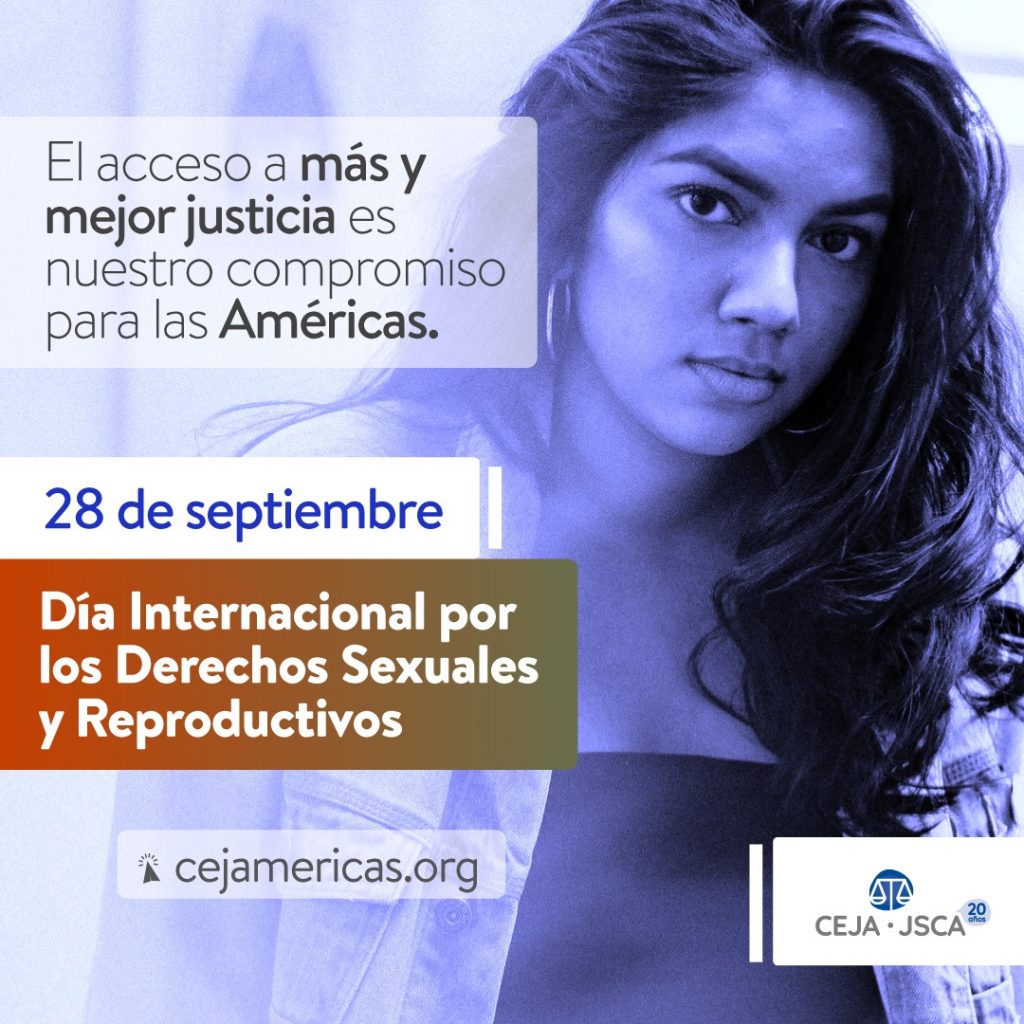International Day of Sexual and Reproductive Rights is commemorated each year on September 28. The date -which was established in 1990 in the context of the V Feminist Meeting for Latin America and the Caribbean- was mainly focused on legal and social decriminalization of voluntary interruption of pregnancy.
It is important to remember that sexual and reproductive rights have since been recognized in international instruments such as the International Conference on Population and Development, which states that each individual enjoys the basic right to freely and responsibly decide how many children to have and the spacing of their births, to have the information and means necessary to achieve this and to enjoy the highest level of sexual and reproductive health. The latter is defined as a general state of physical, mental and social wellbeing in all aspects related to the reproductive system, its functions and its processes.
This includes enjoying a satisfying sex life without the risk of procreation and freedom to decide whether or not to have intercourse and how frequently to engage in it. These concepts are mentioned in many recommendations, such as those of the Convention on the Elimination of All Forms of Discrimination Against Women (CEDAW) and, in the regional context, various rulings of the Inter-American Court of Human Rights and statements from the Follow-up Mechanisms to the Belém do Pará Commission (MESECVI).
What is the situation in Latin America and the Caribbean?
Since then, important progress has been made in Latin America and the Caribbean, including various steps forward towards full guarantees of individuals’ sexual and reproductive rights. However, the current global health emergency presents a threat and setback in this area in the region, negatively impacting women and all individuals with reproductive capacity.
Lock-downs and quarantines meant to stop the spread of COVID-19 have had negative consequences, limiting access to health services for women and other individuals. This is mainly due to the increase in sexual violence that has occurred during confinement, which creates a need for increased access to birth control that is not being met by governments and medical offices because they are not providing priority care. Reports suggest that this has led to an increase in illegal and unsafe abortions.
At the regional level, there is cross-cutting rejection of delays in guaranteeing these rights on the part of governments by creating a lack of supply or limiting access to medical supplies such as antiretroviral drugs, misoprostol, mifepristone and birth control.
For example, in Bolivia there have been reports of a decrease in human resources and supplies for sexual and reproductive health. These services are restricted and victims of sexual violence face barriers to accessing emergency birth control or ways to legally terminate a pregnancy.
In Chile, the NGO Corporación MILES conducted a survey that showed that 45% of respondents faced difficulties accessing sexual and reproductive health services, while 56% of women could not access birth control. The main reasons given for this are lack of services (41%), lack of stock (39%) and high prices (38%).
Meanwhile, in Colombia, service providers have reportedly been treating voluntary termination of pregnancy as a non-priority health service. They delay the provision of care and fail to follow the five-day time-frame in which they are legally bound to respond to requests for the procedure. In addition, many women are confined with relatives who are opposed to abortion, which prevents them from accessing the procedure safely.
In Mexico, the United Nations (UN) expressed concern that the pandemic may impact the availability of medical supplies or quality of medical services, which would worsen the conditions experienced by low- and middle-income women.
The case of Ecuador is also concerning because abortion is illegal and the State decided not to invest in its pregnancy prevention program during 2020 under the pretext of the pandemic.
Priority Policy
This unfortunate trend has been widely documented as the health emergency continues. Delaying access to sexual and reproductive rights has been harshly criticized by international organizations such as UN Women and the United Nations Population Fund (UNFPA). These institutions are encouraging governments to pay special attention to sexual and reproductive rights during this period given that -in their opinion- pandemics aggravate inequities between men and women. Furthermore, they are calling on them to remain alert because the situation presents as a public health problem.
Barriers to access to sexual and reproductive health services constitute a multidimensional challenge for governments. The potential responses include promoting preventative policies aimed at overcoming the aforementioned obstacles and guaranteeing the rights of individuals with reproductive capacity. The impact of this situation on the higher-level courts is clear, as they are called on to hear motions regarding protective actions such as the request for writs of protection of rights.
The aforementioned obstacles and the proposals made to change the course have also been studied by the Justice Studies Center of the Americas (JSCA). We endorse the views expressed by international agencies that are experts in the field and the information reported by health care professionals and members of civil society from various countries in the region. Sexual and reproductive rights must be addressed as a priority public health matter because they specifically impact historically discriminated groups that governments and justice systems have a special duty to protect.
*This article was prepared by Natalia Acevedo, a Chilean attorney who is serving as a research assistant at the Justice Studies Center of the Americas (JSCA).

